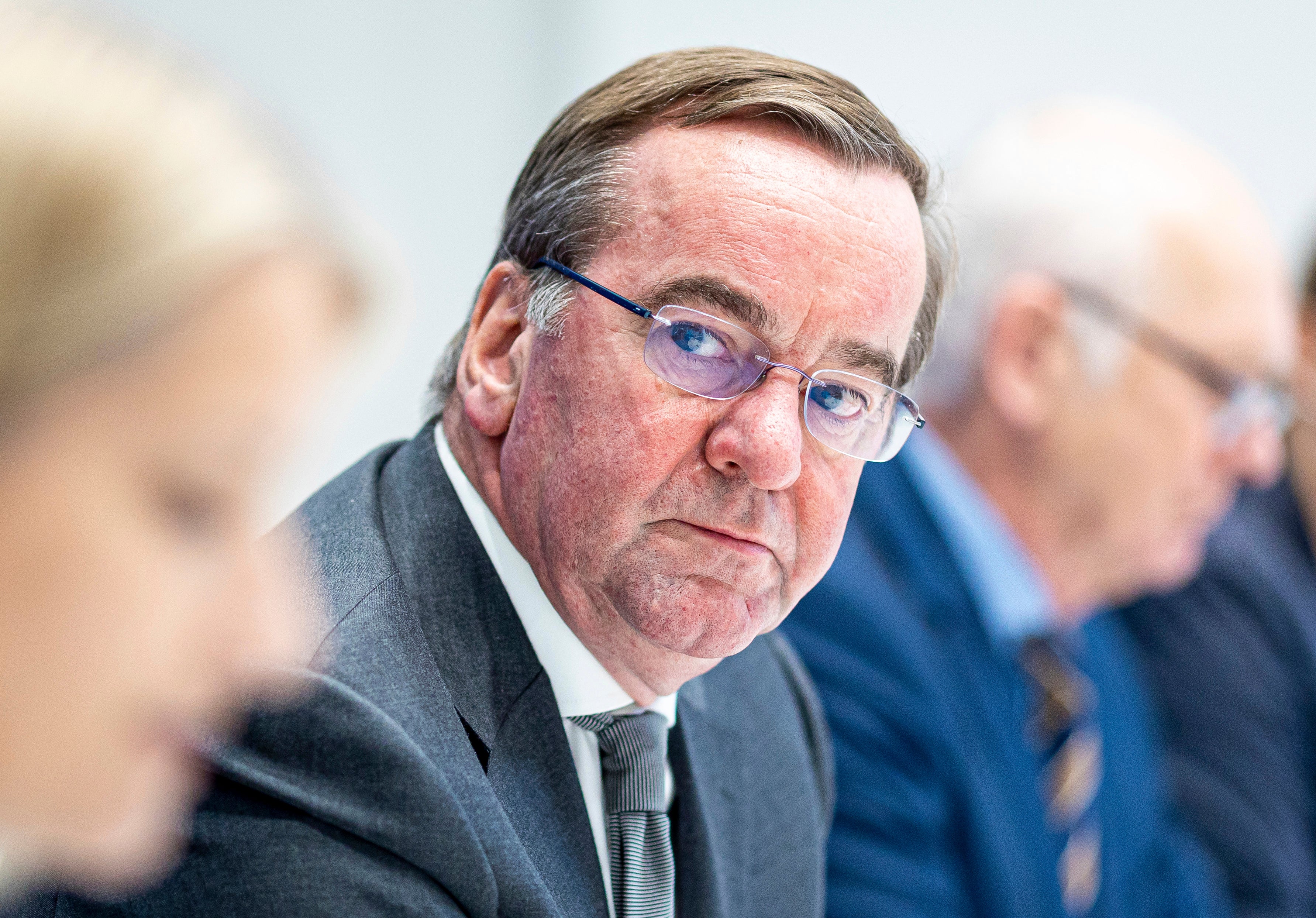Germany’s new defence minister faces decision on sending tanks to Ukraine
Boris Pistorius takes on the role Christine Lambrecht resigned from at the beginning of the week

Your support helps us to tell the story
From reproductive rights to climate change to Big Tech, The Independent is on the ground when the story is developing. Whether it's investigating the financials of Elon Musk's pro-Trump PAC or producing our latest documentary, 'The A Word', which shines a light on the American women fighting for reproductive rights, we know how important it is to parse out the facts from the messaging.
At such a critical moment in US history, we need reporters on the ground. Your donation allows us to keep sending journalists to speak to both sides of the story.
The Independent is trusted by Americans across the entire political spectrum. And unlike many other quality news outlets, we choose not to lock Americans out of our reporting and analysis with paywalls. We believe quality journalism should be available to everyone, paid for by those who can afford it.
Your support makes all the difference.Germany’s government has named Boris Pistorius as the new defence minister, as pressure mounts on Berlin from Western allies to allow Ukraine to use German-made tanks in the war with Russia.
Christine Lambrecht resigned as defence minister on Monday, ahead of a conference on Friday at the US military base in Ramstein on Western plans to provide Kyiv with more arms.
Until now, Germany has been cautious about approving heavy Leopard tanks to be sent to Ukraine – due to worries that such a move could be seen as an escalation of the war. Other countries with such tanks also need Berlin's approval before they can be passed on to another country.
"There are important decisions to be made in the short term, in particular the urgent question of how we continue to support Ukraine in its right to self-defence," the economy minister, Robert Habeck, said in a statement. "Germany bears a responsibility here and has major tasks to accomplish," he added.
The tank decision will be the first item on the agenda for Mr Pistorius, according to Mr Habeck.
Mr Pistorius, 62, who completed his military service in the early 1980s, has been interior minister in Lower Saxony since 2013 and in this role has worked with the armed forces. Like the German chancellor, Olaf Scholz, he ran for the leadership of the Social Democrat (SPD) party in 2019 – they both lost - and he is known for taking a hard line on security issues.
In a statement before he is formally appointed, Mr Pistorius said the armed forces could rely on him. "I know the importance of the task," he said. "It is important to me to involve the soldiers closely and to take them with me."
Mr Scholz described him as a friend and good politician. "He is someone with an awful lot of experience in security policy, who has cooperated openly and closely in his previous role with the Bundeswehr and who possesses the strength and calm that one needs for such a great task," he said.
With Mr Scholz set to head to the World Economic Forum (WEF) in Davos, Switzerland, some of Ukraine's closest allies already at the gathering sought to pressure Germany into giving the green light to send tanks to Kyiv.
"We hope and are trying to organise bigger support for Ukraine. We hope a few partners, allies, will give tanks to Ukraine," Polish President Andrzej Duda said on Tuesday at a WEF panel. Lithuanian President Gitanas Nauseda said he "strongly believes" Germany would provide Leopard tanks to Ukraine.
"We don't have the luxury for such delays. It must be done fast," he said, adding that the tank deliveries would be a strategic part of the next phase of the Ukraine conflict.
Mr Pistorius has been in a relationship with Doris Schroeder-Kopf, the ex-wife of former Chancellor Gerhard Schroeder – who has drawn sharp criticism from inside Germany and abroad for his close ties to Russian President Vladimir Putin.
Mr Pistorius was also a member of the Bundesrat upper house of parliament German-Russian friendship group before it was dissolved in April.
A further priority for the new minister will be to sort out German defence capabilities, under the spotlight since several Puma infantry tanks were put out of service in a recent drill.
At his disposal is a €100bn (£88bn) special fund for defence, agreed after Russia invaded Ukraine nearly a year ago.
Reuters
Join our commenting forum
Join thought-provoking conversations, follow other Independent readers and see their replies
Comments